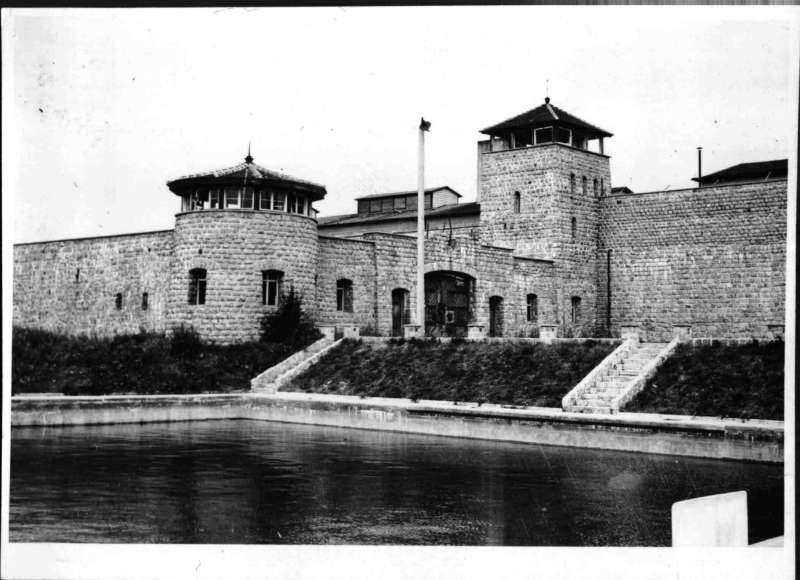Ingeborg R.
For we were asocials
Ingeborg R. was born in Vienna in 1932, the child of a Catholic mother and a Jewish father. Although Ingeborg R.'s mother divorced her husband in 1935, she continued to live with him.
As "first degree half-castes", Ingeborg R. and her sister were subject to constant observation by the authorities after the Anschluss. Her father fled, but many of her relatives were deported and murdered. Mrs. R.'s mother became mentally ill as a result of the persecution and degradation and was sent to the Sanatorium "Am Steinhof" after the war. Ingeborg R. and her sisters grew up with their grandmother and in various institutions. Mrs. R. continues to suffer the consequences of that time today.
In September 1938, my father fled to France and joined the Foreign Legion. I also started school in September 1938. I was supposed to wear the Star of David! After Father's flight, we always had to register personally with the police, every month, I think, to prevent us from going abroad. My mother assumed her maiden name again. My sister was born on 5th March 1938 with the name Herta B., father unknown.
As Father's siblings and their families (thirteen people in total) had all been picked up [they were deported to Mauthausen and Theresienstadt and later murdered], a cousin was adopted in Sweden and a cousin in Styria had been hidden, my mother began to fight for me. She finally received permission for me to go to school without wearing the Star of David, under the condition that I was only allowed to graduate from elementary school and only at a certain school (Staudingergasse) which meant a half hour walk to school and back every day.
My mother was unemployed and in the end became mentally ill. It was terrible. In 1940/1941, I was sent to a children's home for the first time, where, among other things, I had to work in the laundry. I was deemed an "asocial Jewish being". By sister was also sent to a home for a few months – the children's institution "Am Spiegelgrund" [on the grounds of the Sanatorium "Am Steinhof"].The family was split up. At the age of ten, I became very sick, with arthritis and paralysis, and had to be admitted to a hospital for a week.
Near the end of the war, we were registered by the SS stationed opposite [our apartment] as "Jewish rabble", so during the night, we fled through the sea of burning buildings to my grandmother in the 20th District, Rauscherstraße 5, where she hid us in her cellar until the end of the war.
My mother wasn't able to withstand all of this and after two or three nervous breakdowns, she was admitted to Steinhof in December 1945. My little sister was again sent to a children's home and then to foster parents and I was sent to Lustkandlgasse [child collection point of the City of Vienna] and then to a home for trainees. I had to earn my keep by working in the home (washing, cleaning) and in my "free time" knitting and knotting bags. The products were sold – we were asocials. Once a month, when I had finished my "quota", I was allowed to visit my grandmother. The work in the home was sometimes unacceptable. I was undernourished and at the age of fourteen had the weight of a ten year old.
I finished the last class and then, in May 1947, through the home for trainees in Kriemhildplatz in the 15th district, I got a job as a saleslady. In the meantime, my father had returned. My life now began anew. Only my childhood was suppressed. What remains is the fear of fire, gunfire, cellars, darkness and persecution.
When I went to Switzerland with my husband in March 1956, I tried, out of fear of contempt and persecution, to leave everything behind me and to suppress these experiences, to the extent that no one in Switzerland knows of my Jewish past and origins. (Unfortunately anti-Semitism is on the increase again.)
First publication of this article in: Renate S. Meissner on behalf of the National Fund (Ed.): Lives Remembered. Life Stories of Victims of National Socialism. Vienna, 2010, page 225-227.



